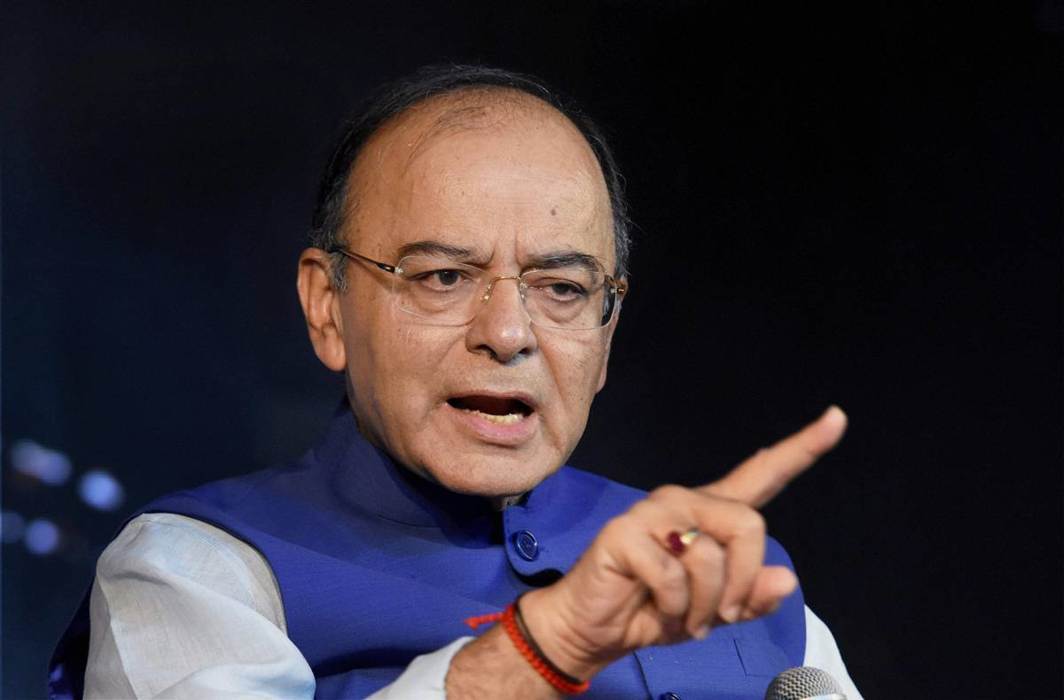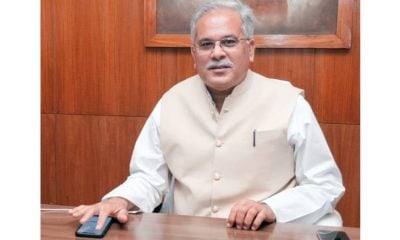[vc_row][vc_column][vc_column_text]A day after senior BJP leader Yashwant Sinha slammed the Modi government’s handling of economy in a stinging article in The Indian Express, Finance Minister Arun Jaitley defended the government policies saying they are aimed at ending corruption.
Speaking at the Nehru Memorial Museum and Library, Jaitley defended the government’s decision of demonetisation and the launch of Goods and Services Tax (GST) and took a dig at his predecessor and said he does not have the luxury of being a former finance minister.
Refusing to respond to the charges made by Sinha, Jaitley said, “I must confess that I do not have the luxury as yet of being a former finance minister. Nor do I have the luxury of being a former finance minister who has turned a columnist.”
He added, “Therefore I can conveniently forget a policy paralysis, 4 billion reserves left in 1991 and I can switch over and change a narrative. Speaking of persons and then bypassing the issues is something which is very easily done.”
The minister also rejected the notion that the economy is in a downward spiral as suggested by Sinha. He mentioned the figures of tax collection to substantiate his claim of a strong economy. “Direct tax figures are 15.7% over and above last year’s figure, so this so-called slowdown visualized by some, hasn’t even impacted,” said Jaitley.
On GST, Jaitley said that the decision was taken with consensus and it was everybody’s call that a single rate should be introduced. He said that while some Congress leaders have been critical, most of the state governments have been supportive. Some teething problems were always expected, he added.
Calling fiscal prudence a difficult job, he said that there has been no reduction in the collection of direct taxes during his tenure. He said that the GST collection in the first two months has also been on expected lines and will pick up pace soon.
Speaking about slow down of growth in the private sector, Jaitley said some harsh steps were taken to control the effects of the “reckless lending” that took place during the UPA era.
On ease of doing business, Jaitley said that the government has ended rep-tapism. Earlier there was a lot of government discretion, which led to corruption. PM Modi has scrapped government discretion and left it to market forces, he said. This, he said, has made India a more attractive destination.
“Today the challenge really is during the boom period of 2003 to 2008-09, our private sector expanded when global economy slowed down. Private companies had undertaken large liabilities from bank, did not find demand. When global commodity prices went down, many of them did not find their loans serviceable.
“Then came a situation in 2012-14 when the governmet virtually gave up, there was no policy initiative, they allowed things to drift on their own. When you allow this, the figure (NPAs) mounted up. I must say that those in government, those in banking industry, those in RBI, when reckless lending took place, all looked the other way.
“Then suddenly some harsh steps were required. so debate is are all those steps taken a bit too harsh. Bankers believe the steps with regard to excessive provisioning are a bit too hard on them. therefore the private sector area itself was one area we have not grown…several areas of private sector have grown.
“Large industry is borrowing more from the bond market than the banks itself. that is the problem that needs to be addressed by us.
Talking about the criticism against demonetisation, Jaitley said it “one of the smoothest possible replacements of currency itself.” He said, “People saw riots would begin, starvation would take place. It was one of smoothest possible replacements of currency itself.”
He also said that the note ban targeted the shadow economy. “Demonetisation was to make sure that the anonymous tender which operated in market gets identified to its owner. The prime minister has a strong agenda on creating a new normal as far as countery’s shadow economy was concerned,” said Jaitley.
The minister added that the government is serious at checking the improper political funding. He added that illegtimate political funding has corrupted the society and tarnished the country’s image globally.[/vc_column_text][/vc_column][/vc_row]


 India News22 hours ago
India News22 hours ago
 Latest world news22 hours ago
Latest world news22 hours ago
 Latest world news8 hours ago
Latest world news8 hours ago
 Latest world news8 hours ago
Latest world news8 hours ago
 India News7 hours ago
India News7 hours ago
 Latest world news7 hours ago
Latest world news7 hours ago
 India News7 hours ago
India News7 hours ago















